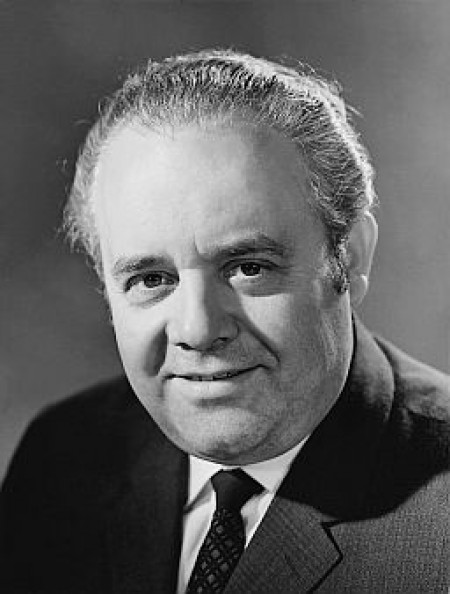
8 July 1925, Ploesti – 5 November 1973, Budapest
József Réti initially studied composition with Gábor Lisznyay Szabó and György Faragó, and in 1949/50 singing with Mrs Pál C. Molnár at the Music Academy. For two years he was the pupil of Luigi Renzi. In his last year at the Academy, in 1951/52, he studied with Erzsébet Hoór Tempis. Afterwards he joined the Army Ensemble as a soloist. He first performed in the Opera House in 1953. At first he played character parts; then, in 1957, received a leading role as Almaviva. "At the time I cursed Aladár Tóth, now I bless him for giving me a leading role only once he had taught me how to do it in dozens of small parts", he said. From that time onwards, right to his death, he was the number one Mozart tenor of the Opera. He was a real bel canto tenor, with an almost limitless upper register and an outstanding ability to form a line. He sang almost every part in the Mozart repertoire; his recording of all the Mozart tenor arias on his last disc was regarded by the critics as the most beautiful Mozart performance on a Hungarian recording. His outstanding character parts, David, Ping, etc. were also important elements in his career. Of the spinto roles, Edgar, Rodolphe and Des Grieux were part of his repertoire.
In the early sixties he belonged to the leading singers of the Opera House. He was at his freest in the buffo roles, but sang with brilliant rhythmic and melodic perfection in the lyric-heroic leading parts as well.
From the 1960's, owing to the work of Gardelli, there was a wonderful improvement in the quality of the standard repertoire that really attracted the audience. As his first step, however, Gardelli, instead of dealing with the Verdi-Puccini oeuvre, took up again, after an interval of two decades, the main task of an historic opera house by expanding the repertoire "introspectively". First came a French comic opera, Count Ory by Rossini, hitherto never performed in Budapest, with singing reaching the European standard. As Count Ory, Réti's humour and beautiful high notes, his soft and yet contour-rich cantilena, came as a revelation. In József Réti once again the company had a first class lyric tenor, who could soon take over all the Mozart and Rossini tenor roles. After the 1965 premiere of Cinderella, Réti's light coloratura received the highest praise. He played also a key part in the revivals of the L'elisir d'amore and Flotow's Martha in that period.
From the second part of the sixties, he was a member of the great Bánk bán cast of the age, in which Bánk was sung by Simándy, Tiborc by Melis, Petur bán by András Faragó, Biberach by László Palócz and Ottó by Réti.
Ferencsik's famous productions reviving 20th century works included Alban Berg's Wozzeck; at the 1964 premiere Ferencsik was able to give a full account of the score and – according to those who witnessed the performance – József Réti as the Captain fulfilled even the highest expectations. He could have sung the part in any of the great opera houses of the world.
Réti began at an early stage to sing oratoria and songs; in the sixties and seventies he was among the most often used concert soloists, and performed all over Europe as a guest artist. His lively, personal and intense interpretation of the part of the Evangelist in Bach's passions was internationally known and praised. It was his profound musicality that enabled him to give a significant performance also as a member of ensembles. He was a dreaming lyric poet in Schumann's Dichterliebe cycle. His early death robbed Hungarian musical culture of
one of its great figures. Between 1964 and 1973 he was a professor at the Music Academy; he was awarded a Liszt Prize and the title, Outstanding Artist.
A. T.


